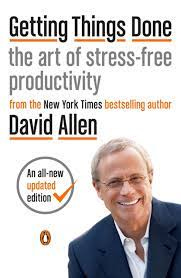And how does it feel with your god strapped to your wrist? ― Roy Harper, How Does It Feel
Back in the mid-90s I was staying on friend’s canal boat in the middle of Birmingham. He’d asked me and Lucy to paint it — no guidance, just do what you like. I probably have a photo of it somewhere, but it predates digital, so… you know. Thinking about it, I painted a number of things for this guy, his bike, his student bedroom, and now his boat. Anyway, while there, I remember I read The Tao of Time. Anything with Tao in the title was guaranteed to get my attention back then.
The key thing I remember from that book was the advice to go without a watch; I’ve not worn one since. Actually, to go without a clock altogether. To just do as you feel, to get up when you feel like it, to eat when you feel hungry, to go to bed when you wish. But more than that — to not even check the time when you do those things. To be completely free of knowing the time. I managed it for a couple of days on that boat. I found the experience quite liberating. My wife, on the other hand, found my trying to impose the experience on her quite annoying.
Lucy and I have different relationships to time. She’s an early bird, I’m a night owl (though I seem to be changing with age). I spend time planning how I’m going to do a task, while she gets on and does it. So if you’re like my wife, you can probably stop reading this now, but if you’re like me, here’s a few things that I’ve found useful.
1. Getting Things Done by David Allen
What is it with this name? As a kid I loved the Dave Allen comedy specials, then in the 80s I saw Daevid Allen (of Gong) numerous times. The latter was wonderful, and while it may have altered my perception of time and space, I think I can definitively state that Daevid (AKA Bert Camembert) did little to help with anyone’s ability to get anything done.
Now here’s David Allen. I picked this book up on Dirk the Dice’s recommendation. I followed the process and it was a real game changer for me. Real practical procedures rather than mumbo-jumbo.
2. The Diary Of A CEO with Steven Bartlett
Yeah, that guy from Dragon’s Den. I’ve been enjoying his podcast. He recommends assigning a time to each task on your todo list. I tried this: first I put a number of minutes next to each job: as little as 10 or as much as 120. Then I write down the time I start the task, and work until either the task is complete, or the time is up. This really helps me focus — I feel like I have a deadline. Can I get this task done before the time runs out? If it’s a big task, as least I know I’ve taken a bite out of it, and I’ll allocate further time to it another day.
3. Conkers (this is the one you were waiting for, right?)
Every autumn, I can’t resist picking up conkers in the park at the back of my house. Their rich red-brown hue brings strong memories of childhood; conkers threaded onto a length of string being bashed together in the playground. It’s my jumpers for goalposts.
Recently, I was struggling against the lure of the socials. I was at that stage in a writing project where every distraction feels somehow earned and welcome. I picked up the five conkers sat on my desk and put them into my empty glasses case. Every time I felt like breaking off from the project to open Twitter or whatever, I instead made myself pick up one of the conkers, hold it for a moment, then put it aside, and return to the task. It actually worked for me, and somehow I never took all the conkers out. And that, my friends, is how I conkered time. I know, I’m sorry, I can’t help myself.
I stopped doing the conker thing, but I might go back to if I feel the need.
And Finally
I’m a big believer in different strokes for different folks - no one technique is going to work for everyone. Some people love the Pomodoro thing (a quick Google will enlighten you if you’re not familiar), but it didn’t work for me. I’m wondering what has worked for you? Please feel welcome to let me know in the comments.
The final word comes from another wonderful book with Tao in the title:
You can't save time. You can only spend it, but you can spend it wisely or foolishly. ― Benjamin Hoff, The Tao of Pooh






